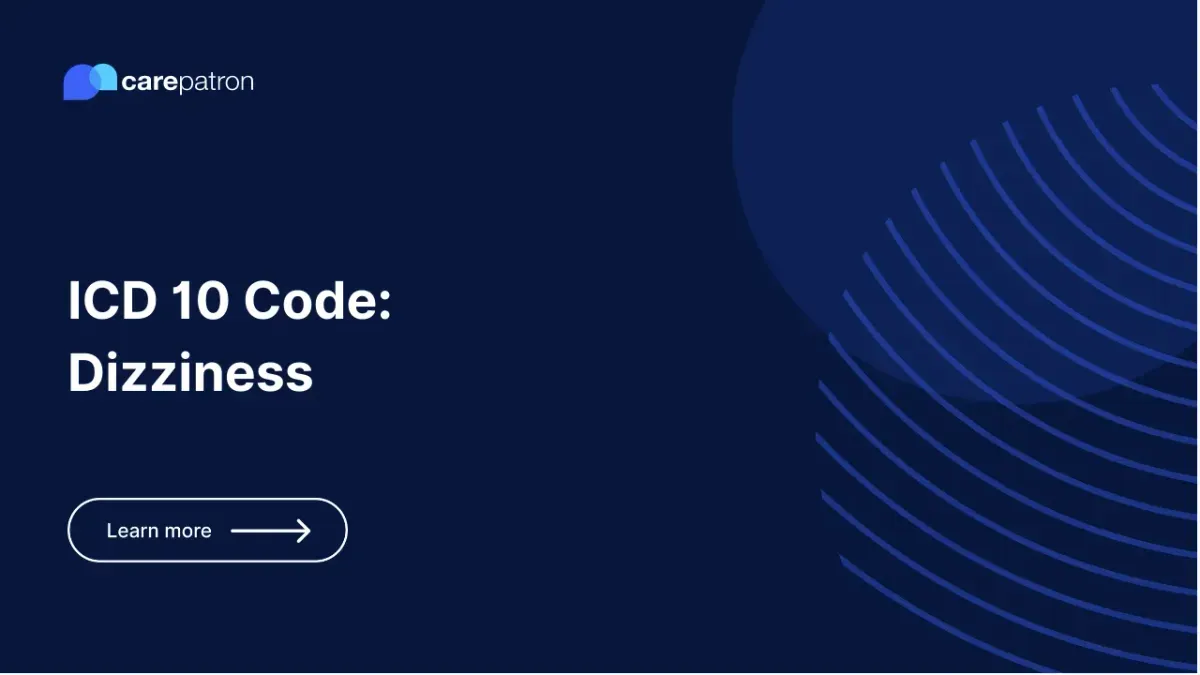
Dizziness ICD-10-CM Codes | 2025
Learn more about ICD-10 codes used for dizziness, their billability, synonyms, and answers to FAQs. Be more accurate when coding with the help of our guide.
Use Code
Commonly asked questions
You can use a dizziness ICD code if your patient has dizziness symptoms and if they also exhibit other symptoms under the other ICD codes associated with dizziness, especially for disorders characterized by headaches.
Yes, most of the dizziness diagnoses are billable.
Common treatments for dizziness diagnosis codes are home remedies and medication.
EHR and practice management software
Get started for free
*No credit card required
Free
$0/usd
Unlimited clients
Telehealth
1GB of storage
Client portal text
Automated billing and online payments
